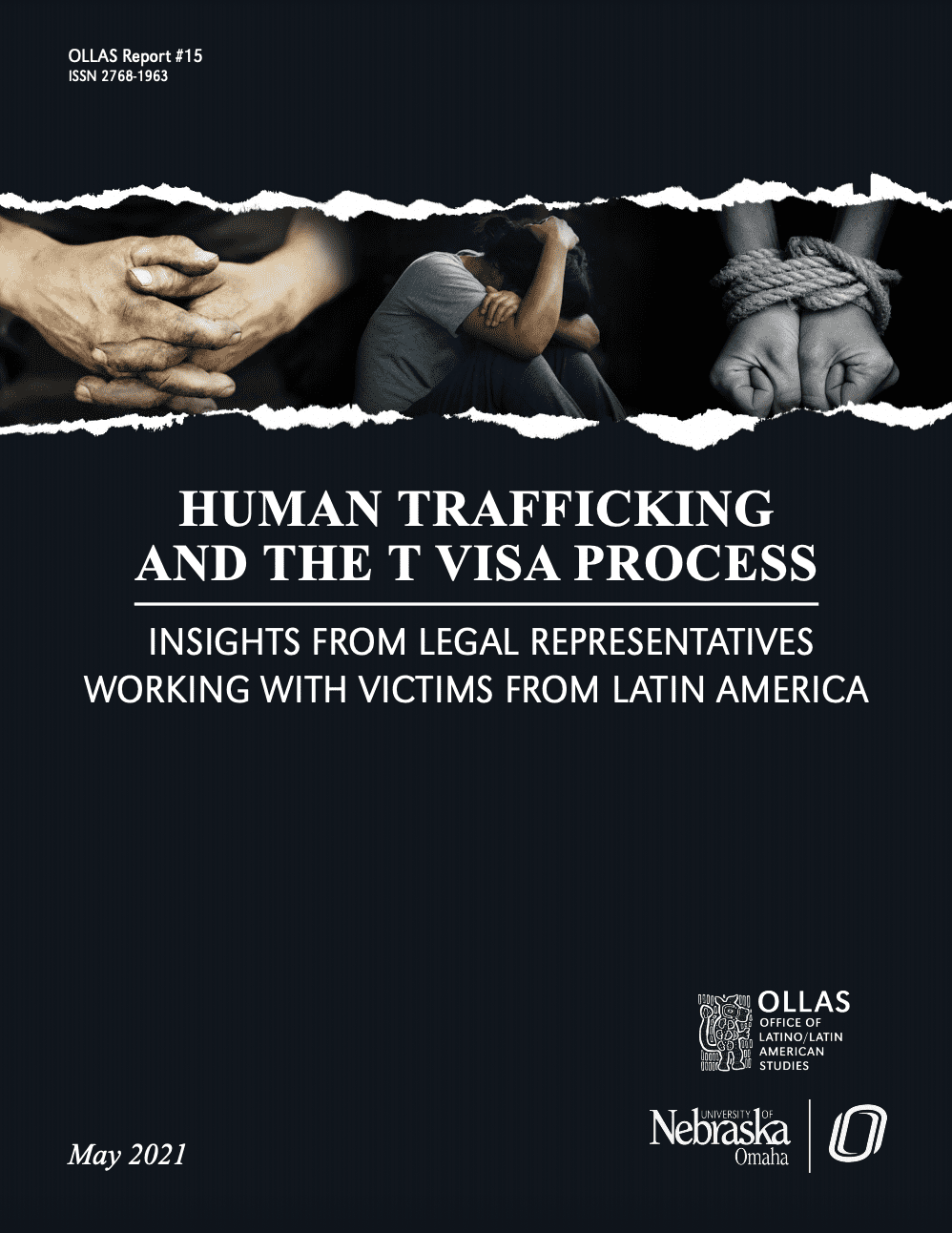
Human Trafficking and the T Visa Process: Insights from Legal Representatives Working with Victims from Latin America
Abstract
Human trafficking occurs when traffickers use force, fraud, or coercion to compel individuals to provide labor or services—broadly known as labor or sex trafficking. Traffickers often take advantage of individuals who are perceived as vulnerable, including those lacking immigration status. In response, the United States Congress created a T nonimmigrant status (also referred to as a T visa) in October 2000 to protect immigrant victims and to strengthen law enforcement’s ability to investigate these crimes. The current study sought to examine the trafficking experiences of foreign national victims from Latin America specifically by interviewing legal representatives who assist these individuals in Nebraska. These representatives were selected due to their intimate knowledge of the T visa process and their unique position to identify human trafficking victims during legal consultations. Interviews were conducted via Zoom with six individuals who provided rich insights into 22 cases involving victims of human trafficking from Latin America. The findings include an overview of the legal representatives who encountered these cases, describes the trafficking experience of victims from Latin America, explores the challenges of filing for a T visa, examines the role of service providers in addressing clients’ needs, and reviews the legal representatives’ perceptions of barriers to trafficking cases. The report concludes with policy implications that are useful to individuals or institutions (e.g., agencies, legal representatives, law enforcement) in anti-trafficking initiatives.
Current Study
Although immigrants can come from any country, undocumented immigrants in the United States are estimated to be primarily from Latin America (Baker, 2018; Passel, 2019). Yet, relatively little research has focused on this potentially at-risk population (cf. Lee, 2007; Novak, 2012). Thus, the current study seeks to examine the experiences of this population specifically, including process of filing for a T visa or the outcomes of individuals after they apply. This line of inquiry is important as a first step to assess the unique experiences of foreign national victims and whether the T visa process is conducive to victims obtaining the needed resources and assistance. In this context, the current study sought to build off of past research examining the trafficking experiences of foreign national victims from Latin America by interviewing legal representatives who assist these individuals (Brennan, 2009; Novak, 2012). As noted above, legal representatives have unique opportunities to explore the detailed nature of these offenses when victims are trying to obtain government assistance and protection through the T visa application. Therefore, these individuals can provide rich insights into the nature of these offenses and how the T visa process unfolds, including its impact on victims’ prospects and outcomes.
Objectives
Although the purpose of this project was to examine the T visa process and outcomes, it is also important to contextualize these experiences based on the experiences of victims and the interactions between the legal representatives and those they collaborate with on these cases. Given these overarching goals, the current study has five objectives:
- Provide an overview of legal representatives and how they come into contact with human trafficking victims from Latin America
- Describe the trafficking experiences of victims from Latin America
- Explore the process and challenges of filing for a T visa, the outcomes of these efforts, and how these applications affected the lives of trafficking victims
- Examine the role of service providers and the potential for collaborations on trafficking cases from Latin America
- Review legal representatives’ perceptions of barriers to trafficking cases and how to improve responses
Read more here.
